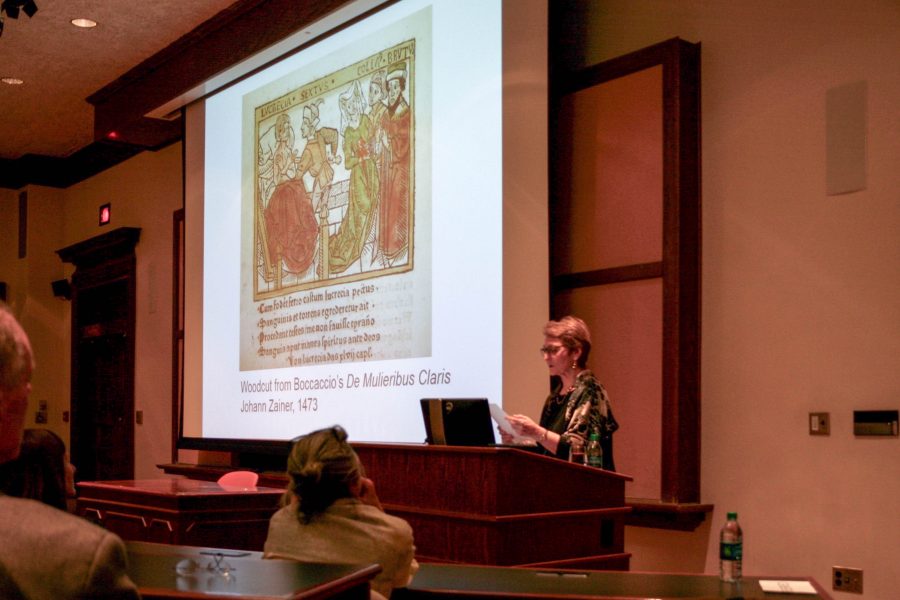In celebration of the 400th anniversary of the death of the most acclaimed playwright and poet the English language has ever known, Lafayette established the “Shakespeare Quadricentennial Lecture Series.”
On Wednesday, Jean E. Howard, the George Delacorte Professor in the Humanities at Columbia University, served as the inaugural speaker in this series with her presentation “Interrupting the Lucrece Effect? Performing Rape on the Early Modern Stage.”
The “Lucrece Effect” that she spoke of is based around misogynistic portrayal of the famous rape of Lucrece by the son of the last king of Rome and her subsequent suicide out of shame. This rape proved to be the catalyst for the overthrow of the Tarquinian dynasty and the establishment of the Roman Republic, taking the tragedy away from Lucrece as a person and turning it into a tragedy inflicted on the men around her. The effect is, Howard said, when a woman is raped, the focus of her tragedy is shifted to the men in her life, and her honor is only redeemed by her death.
According to Howard, rape was seen as an “essential force for progress” in the Roman world: Paris abducted Helen of Troy to start the Trojan Wars, Rome was founded with the abduction of Sabine women, and finally the rape of Lucrece transitions Rome to the Republic for which later Europeans would admire them. As such, rape was viewed through the lens of being a property crime against men, rather than as a sexual crime perpetrated against a woman.
She spoke of the Shakespeare play “Titus Andronicus,” in which a brutal and violent rape forms the core of the conflict throughout. The titular character’s daughter is raped in the forest, and her tongue is cut out and her hands chopped off to prevent her from communicating about it.
“I know,” she said as she saw several members of the audience wince in reaction to the brutal crime, “this is disturbing stuff.” Howard examined whether Titus Andronicus adhered to or branched off from the “Lucrece Effect,” as though Lavinia’s rape is quickly turned into Titus’ tragedy and she is killed in order to redeem her honor, Shakespeare’s customarily sparse stage direction permits a wider interpretation of just how much of the tragedy is hers and how much is Titus’.
Howard spoke of how many depictions of Lavinia post-rape tended to try to preserve her beauty, minimizing her suffering and, therefore, taking emphasis away from her, such as the 1999 film version featuring Laura Fraser. However, some more feminist depictions have taken the opportunity to focus more on Lavinia’s suffering, her tragedy and her desire for revenge.
But Howard concluded that, although it defies many aspects of the “Lucrece Effect,” Titus Andronicus remained steeped in the strain of misogyny and ideas about femininity that the effect stems from. Lavinia still dies at the end of the play to redeem her honor, and the tragedy of the story is focused on Titus. So, Howard said, the play—while branching in the right direction—ultimately remains tied ancient perception of women.






































































































